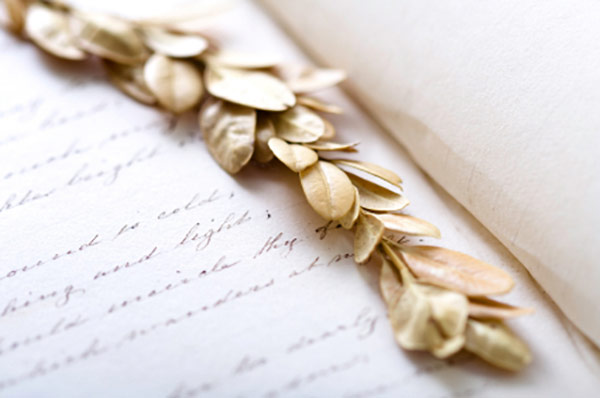I occasionally receive an email or comment from someone who asks how to start writing poetry. These aspiring writers might have read some poetry, maybe even dabbled in writing it, but they feel disconnected from it. They want to write poems, but they’re not sure how to begin.
Some are interested in producing publishable works; they want to see their poems in magazines and journals; maybe they want to publish their own collection or place their poems in an anthology. Others just want to explore poetry as an art form, for self-expression, or therapeutic reasons.
There’s no right or wrong reason to start writing poetry. If you want to write it, you should. Which brings us back to the question, how does one start writing poetry?
Something New
The easy and obvious answer, of course, is to just do it. Pick up a pen, grab a notebook, and write something. Put words on the page. Form them into lines. Arrange the lines into stanzas. Review and revise. You’ve got a poem.
But starting something new isn’t always that easy. There are obstacles, real and imagined, that get in our way.
Imagined Obstacles
Most people have a pretty good understanding about what a poem is. They might want to learn more about different types of poetry, but they’ve already got the general idea. Yet something prevents them from actually writing a poem. Or maybe they’ve tried and come away every time feeling like an imposter. Maybe they read back their attempts at poetry and see nothing but the flaws.
If you want to write poetry, you should write it. You might not be an expert. You might not be the next Emily Dickinson or Robert Frost. Maybe you’re an amateur. But you’re definitely not an imposter. Everybody starts somewhere, and most of us start out writing really bad poetry. Most of us leap into poetry and land way over our heads. It takes time to learn poetry and develop the skills to write poetry well. Accept that you’re a beginner and give yourself time to develop your abilities. Invest in a little studying and practice. If you stick with it, your confidence will grow and your poetry will improve.
What About Actually Writing a Poem?
There’s no magical formula to help you start writing poetry. If you’ve read some poetry, then you have a general idea of how it’s done. So give it a try. If you haven’t read any poetry, what are you waiting for? Read a few pieces and then try writing one. Pick up an introductory book about poetry. Search for poems that speak to you on websites like poets.org or Poetry Foundation. Once you feel like you understand poetry better, you’ll feel a lot more comfortable writing it.
If you’re still stumped, I’d recommend choosing one of the many poetry forms that are available. Forms provide a set of guidelines that you can follow, which gives you some direction that can be quite useful for beginners. Two forms that are good for starters are haiku and sonnets. Another good form for beginners is a quatrain, which is quite simple: it’s a stanza of four lines that rhyme, and you can use any rhyme scheme you want. The lines can be any length and meter.
Don’t worry about how good it is or how fast you can write it. Don’t expect every line to come out perfect during your first draft. Give yourself time to think about the words you want to use. Then allow yourself to edit and revise the poem and see what improvements you can make over a few days.
Then do it again. And again.
That’s how you start writing poetry.





Poetry are your thoughts, feelings, observations, and ruminations. Putting a thought into words is like putting paint to a canvas. Write about what you want to capture and share and you will have created art. No one can tell you that you have written a bad poem if you like it.
This is a lovely sentiment. I wholeheartedly concur.
Poetry is so very personal that almost anything is fine. Just as long as it’s what you feel.
I think it’s easier to get into poetry writing nowadays with free verse, but I concur with Melissa that starting with haiku and other poems of this type is an excellent way to begin.